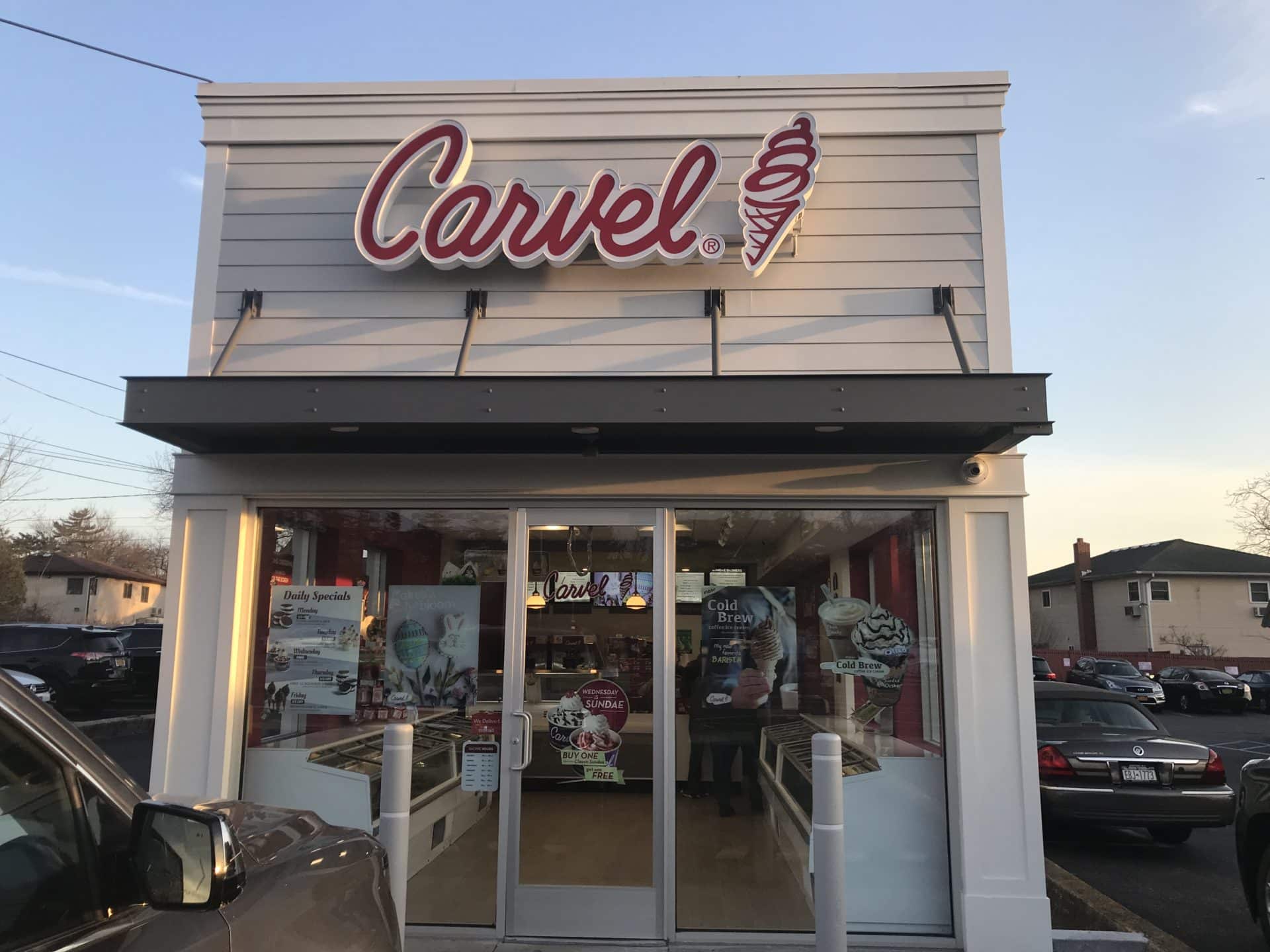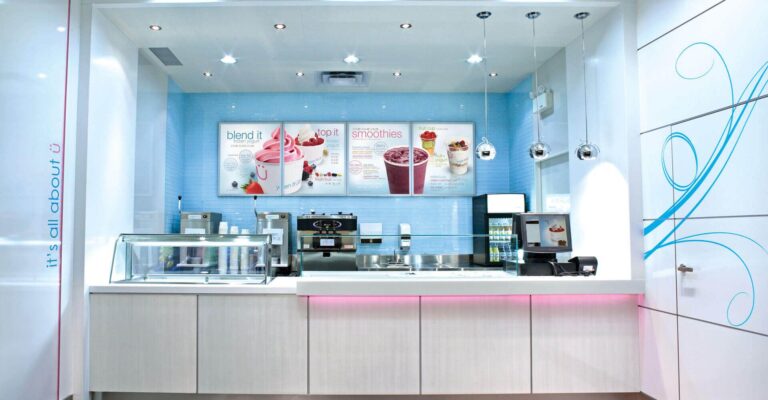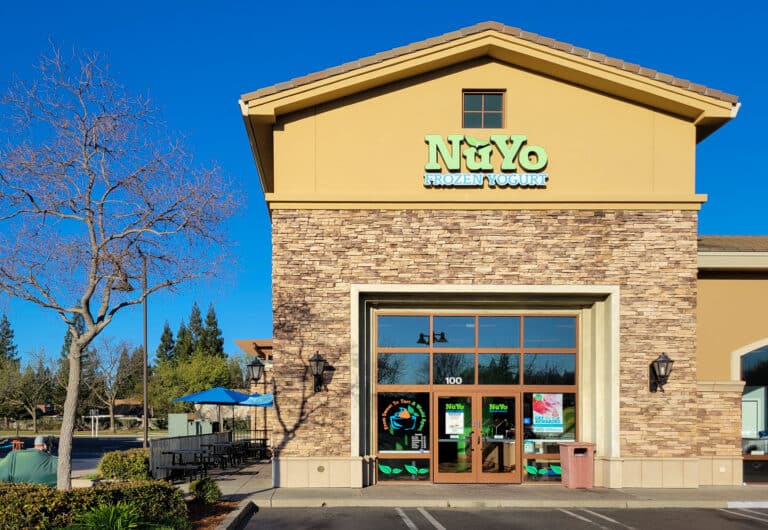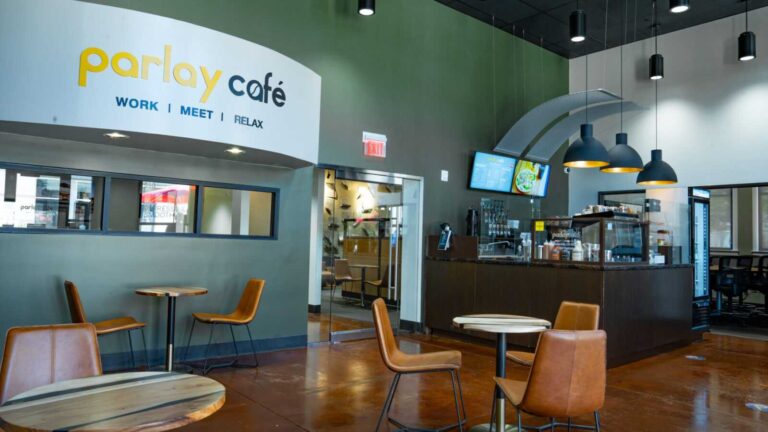Carvel Franchise FDD, Profits & Costs (2025)

Carvel has been a distinguished player in the ice cream sector since its inception in 1934, with Tom Carvel pioneering the venture through his mobile ice cream sales. His original strategies laid the groundwork for what would become the first retail ice cream venture in the country.
By 1936, this initiative had evolved into the Carvel Corporation, notable for its unique method of creating ice cream at extremely low temperatures without the use of air pumps, enhancing its distinctiveness in texture and flavor.
In a groundbreaking move in 1947, Carvel ventured into franchising, opening the first franchised retail ice cream outlet in the U.S., paving the way for its national growth and acclaim.
Originally based in Yonkers, New York, at the versatile Carvel Inn, the company relocated its headquarters to Farmington, Connecticut, during the 1990s.
Initial Investment
How much does it cost to start a Carvel franchise? It costs on average between $39,000 – $1,100,000 to start a Carvel franchised restaurant.
This includes costs for construction, equipment, inventory, and initial operating expenses. The exact amount depends on various factors, including the type of restaurant you choose, the location, and whether the franchisee chooses to lease or purchase the property. Indeed, Carvel offers 5 types of franchises:
| Type of Shoppe | Initial Investment Range |
|---|---|
| Full Shoppe | $392,375 to $785,850 |
| Express Shoppe | $73,075 to $222,260 |
| Hosted Express Shoppe | $38,800 to $99,800 |
| Ice Cream Truck | $122,775 to $316,350 |
| Cinnabon Co-Branded Shoppe (Swirl Shoppe) | $443,810 to $1,099,500 |
We are summarizing below the main costs associated with opening a Carvel Full Shoppe franchised restaurant. For more information on costs required to start a Carvel franchise, refer to the Franchise Disclosure Document (Item 7).
| Type of Expenditure | Amount |
|---|---|
| Initial Franchise Fee | $30,500 |
| Construction and Build Out Costs | $128,600 to $318,000 |
| Permitting | $550 to $4,100 |
| Equipment Package | $134,000 to $208,000 |
| Furniture | $3,800 to $4,300 |
| Menu Board, Graphics and Interior Signage | $8,450 to $10,200 |
| Exterior Signage | $5,400 to $13,500 |
| Computer System | $10,500 to $32,000 |
| Smallwares | $7,800 to $12,000 |
| TV/Music | $1,100 to $4,300 |
| Architect/Engineer | $5,400 to $18,000 |
| Rent | $2,000 to $7,500 |
| Grand Opening Marketing | $3,000 to $7,500 |
| Legal and Accounting Fees | $5,000 to $10,000 |
| Insurance | $1,125 to $6,300 |
| Misc. Opening Costs/Office Supplies | $1,800 to $6,800 |
| Security Deposits | $0 to $15,000 |
| Management Training Program Fee | $0 to $3,000 |
| Travel and Living Expenses during Training | $4,100 to $6,300 |
| On-Site Training Fee | $0 to $5,300 |
| Opening Inventory | $5,000 to $15,000 |
| Additional Funds – 3 Months | $32,500 to $50,000 |
| Total Initial Investment | $392,375 to $785,850 |
Average Revenue (AUV)
How much revenue can you make with a Carvel franchise? A Carvel franchised restaurant makes on average $481,000 in revenue (AUV) per year.
Here is the extract from the Franchise Disclosure Document:

Carvel Franchise Disclosure Document
Frequently Asked Questions
How many Carvel locations are there?
As of the latest data, Carvel operates 326 locations, all of which are franchised or food service outlets. The company does not manage any company-owned locations, focusing entirely on franchising. Carvel’s reach extends across 16 states, with its products also available in over 9,500 supermarkets.
What is the total investment required to open a Carvel franchise?
The total investment required to open a Carvel franchise ranges from $39,000 to $1,100,000.
What are the ongoing fees for a Carvel franchise?
Carvel franchisees are required to pay a 6% royalty fee on gross sales. Additionally, there is a 4% marketing fee based on gross sales, which covers both national and local advertising efforts to promote the brand and support franchisee marketing initiatives. These ongoing fees help maintain consistent brand visibility and support across all Carvel locations.
Who owns Carvel?
Carvel is owned by Focus Brands, a parent company that also owns several other well-known franchise brands, including Cinnabon, Auntie Anne’s, and Jamba. Focus Brands is a subsidiary of Roark Capital Group, a private equity firm that specializes in franchised businesses. Roark Capital acquired Carvel in 2001, and since then, it has been part of Focus Brands’ portfolio of food service businesses.
Disclaimer
Disclaimer: This content has been made for informational and educational purposes only. SharpSheets is an independent educational resource and is not affiliated with, endorsed by, or representing any franchisor mentioned on this website. Where noted, figures are taken from the franchisor’s Franchise Disclosure Document (FDD). In some cases, we may provide independent calculations or estimates based on publicly available information. We do not make any representation or warranties with respect to the accuracy, applicability, fitness, or completeness of the information presented in the article. You should not construe any such information or other material as legal, tax, investment, financial, or other professional advice. Nothing contained in this article constitutes a solicitation, recommendation, endorsement, advertisement, or offer to buy or sell any franchises, securities, or other financial instruments in this or in any other jurisdiction in which such solicitation or offer would be unlawful under the franchise and/or securities laws of such jurisdiction.
All content in this article is information of a general nature and does not address the detailed circumstances of any particular individual or entity. Nothing in the article constitutes professional and/or financial and/or legal advice, nor does any information in the article constitute a comprehensive or complete statement of the matters discussed or the law relating thereto. You alone assume the sole responsibility of evaluating the merits and risks associated with the use of any information or other content in this article before making any decisions based on such information or other content.




